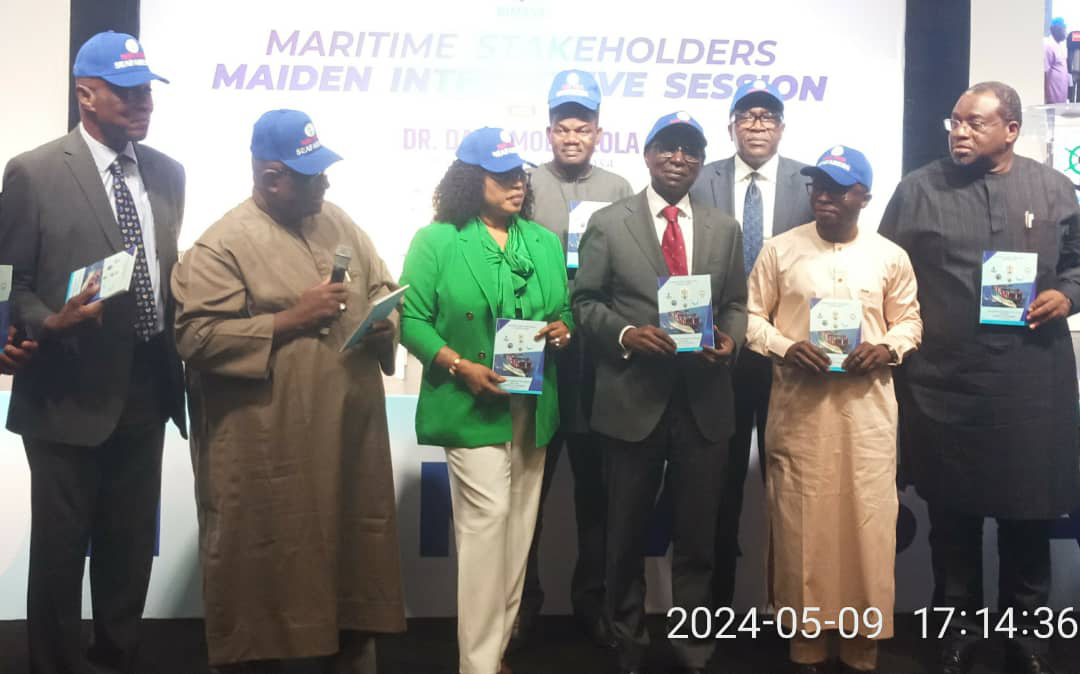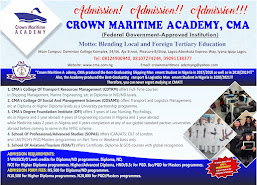Nigeria's Maritime Sector Bleeds $1 Trillion Annually Due to CVFF Non-Disbursement, Stakeholders Allege
In a revealing session held in Lagos, maritime stakeholders unveiled a staggering truth: Nigeria's maritime sector hemorrhages approximately $1 trillion yearly due to the non-disbursement of the Cabotage Vessels Financing Fund (CVFF). The disclosure came during the Maritime Stakeholders Group Meeting, graced by Dr. Dayo Mobereola, the new Director General of the Nigerian Maritime Administration and Safety Agency (NIMASA).
Emeka Akabogu, a seasoned Maritime Lawyer, underscored the dire consequences of this funding shortfall. He emphasized that the absence of local marine transportation was draining the nation of $4 billion annually. Furthermore, Akabogu pointed out that Nigeria's non-participation in international freight services led to an astonishing $9 billion loss each year.
The fisheries sub-sector, a significant contributor to Nigeria's economy, adds approximately N282 billion annually. Despite possessing coastal resources valued at a staggering $504 trillion, the country fails to realize its maritime potential. Alarmingly, illegal maritime activities chip away at $25.5 billion annually, with the Nigerian National Petroleum Corporation Limited enduring a loss of $1.35 billion due to oil bunkering.
Akabogu shed light on the current state of Nigeria's maritime fleet, revealing that in 2024, the nation boasted 4,419 registered ships with a total tonnage exceeding 5.8 billion. However, concerning disparities surface when analyzing the employment landscape. Capt. Alfred Oniye of the Merchant Seafarers Association of Nigeria lamented that over 80% of seafarers remain unemployed, underscoring a glaring gender gap.
Furthermore, despite efforts to promote gender diversity, only a mere 9.3% of seafarers are women. Akabogu raised concerns over the plight of female seafarers, noting that out of 250 students at the Maritime Academy of Nigeria, only 26 were female. Moreover, he highlighted the stark contrast in remuneration between Nigerian and foreign seafarers, painting a picture of unequal pay scales.
Expanding on Nigeria's maritime potential, Akabogu emphasized the vast opportunities within the blue economy, estimating its worth at $296 billion. He underscored the sector's capacity to generate N7 trillion annually and create 2 million jobs over five years, citing Nigeria's extensive coastline and inland waterways as valuable assets.
Rear Admiral Mustapha Hassan of the Nigerian Navy emphasized the urgency for effective implementation of the Cabotage Act, stressing the need for inter-agency collaboration. However, Temisan Omatseye, a former NIMASA Director General, voiced concerns regarding the bureaucratic hurdles hindering CVFF disbursement, citing conflicts with financial regulations.
In response, Dr. Adedayo Mobereola, the current NIMASA Director General, pledged to address these challenges, vowing to develop a sustainable master plan aligned with government objectives. He assured stakeholders of inclusive decision-making and collaboration to harness Nigeria's maritime potential.
As the meeting concluded, Elder Asu Beks, Chairman of the Maritime Stakeholders Group, urged NIMASA to explore avenues such as the Local Content Act to bolster the sector's growth. With a collective resolve, stakeholders expressed optimism for positive outcomes, underscoring the critical importance of addressing systemic challenges to propel Nigeria's maritime sector towards prosperity.


















0 Comments